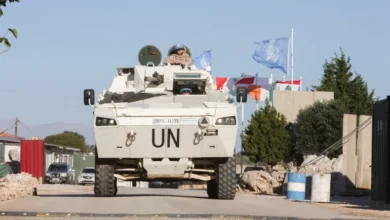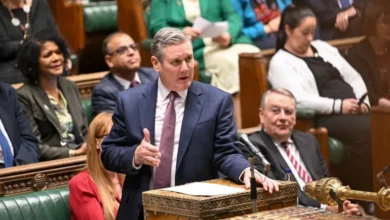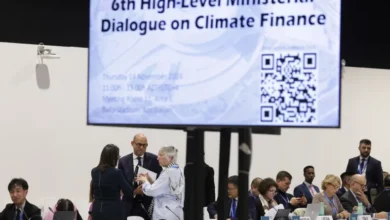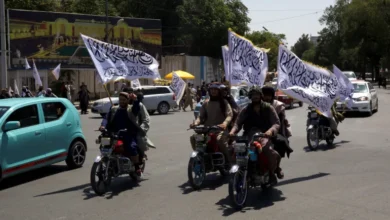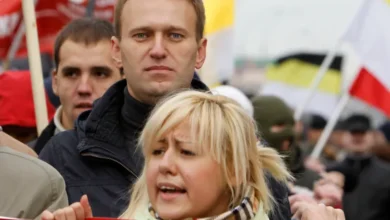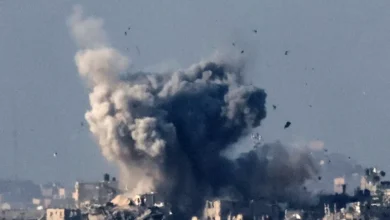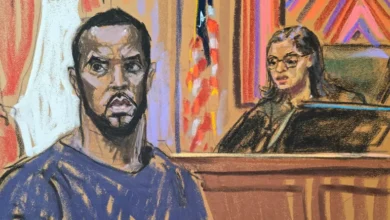The explosion shattered doors and windows of the apartment building and shook off snow from cars parked close by. It was like a “breath of death”, according to Kirillov’s ex-neighbour. Ulyana, who used to walk her dog near the general’s house, said the attack made her “really think about what your neighbours do for a living”. “You feel the war knocking on your door. You feel the breath of death, even if it’s the death of someone who deserved it,” the 34-year-old, who took part in anti-Kremlin rallies before leaving Russia last year, told Al Jazeera. She inadvertently repeated the Security Service of Ukraine’s (SBU) wording. “He was a legitimate target and deserved death,” an SBU source told Al Jazeera. “And there are many more Russian war criminals on our list.” Ukraine’s elimination campaign “doesn’t contradict international law, it’s about strikes on enemy territory, aimed at enemy combatants”, Kyiv-based analyst Igar Tyshkevich told Al Jazeera. Its most recent victims include missile and drone designer Mikhail Shatsky, who was gunned down on December 12 in a Moscow park. On December 9, a car bomb killed separatist “prison official” Sergey Evsyukov in the rebel-controlled city of Donetsk. In July 2022, an explosion in the Olenivka penitentiary he managed killed 53 Ukrainian war prisoners and wounded more than 100.
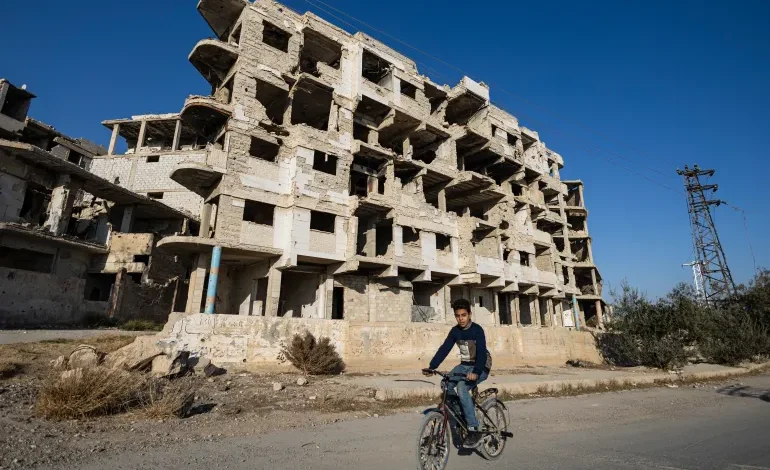
Rebuilding Syria after more than a decade of devastating conflict is no simple task. The country’s destruction spans physical infrastructure, governance systems, and the very social fabric that once held its people together. While the dream of a prosperous, strong and unified new Syria is certainly achievable after the fall of the al-Assad regime, certain conditions must be met before the country can rise from its ashes.
First, a transitional government whose authority is accepted by all stakeholders must be formed to ensure a smooth transfer to democracy. Any attempt to rebuild can only achieve success if it is guided by an inclusive and stable government that has international recognition and the trust of the Syrian people. A new Syria cannot be built without a new social contract that champions human rights, democracy and the rule of law. Crafting this contract will demand the collective wisdom of Syria’s brightest minds and intellectual leaders, as well as the genuine support of the global community. Only a transition steered by Syrians themselves, but fully supported by international institutions through the sharing of expertise and provision of technical support, can ensure successful reconstruction.
This endeavour will be challenging, and the path to realising it will likely be fraught with obstacles as the current political landscape remains fragmented, with no clear path to a stable and fully representative government. Without this, however, reconstruction efforts risk becoming another tool for deepening divisions rather than healing them.
Second, the stability of the Syrian state and security of its people must be guaranteed. A country under attack and fraught with conflict cannot be effectively rebuilt. Israel’s air attacks on Syrian territory and annexation of more land since the fall of the al-Assad regime have exacerbated instability. Such actions not only devastate infrastructure but also demoralise communities and jeopardise hopes for swift reconstruction and recovery.
As the global community keeps a close eye on Syria’s new leadership to ensure a smooth transition, it must also send a clear and forceful message to Israel. This message should strongly condemn Israel’s actions and demand their immediate cessation. The international community needs to make it clear that such behaviour is unacceptable and must stop right away. Stability isn’t just about the absence of war; it’s about creating an environment where people feel safe to rebuild their lives and invest in their future, The last thing Syrians need at this critical stage is a new war front with all the uncertainties and instabilities it will create for the new transitional government.
Third, international sanctions must be lifted to allow the country to get back on its feet. The Caesar Act, especially, which has crippled Syria’s economy and made it nearly impossible to bring in foreign investment, must be repealed. These sanctions, which were aimed at pressuring the previous regime to enact human rights reforms and ease repression, have also had a significant effect on the lives of everyday Syrians, deepening their suffering and despair.
The global community may hesitate to fully lift sanctions due to uncertainty about Syria’s new leadership. Nevertheless, a more nuanced approach could be adopted. Instead of blanket sanctions, a targeted strategy that involves easing restrictions on Syria’s dynamic business community and private sector could be implemented. This would contribute to Syria’s long-term stability and speed up reconstruction. Meanwhile, targeted sanctions against specific government officials can be used as a tool to encourage a positive transition, if necessary. This approach balances the need for caution with the imperative of economic revival and reconstruction.
Fourth, civil society must be empowered to play an active role in the reconstruction process. Independent local organisations must be closely involved in all reconstruction efforts, ensuring transparency and accountability. Under the rule of the al-Assad family, Syria has never had an independent civil society. Years of iron-fisted control have snuffed out community-led initiatives, leaving a society ill-equipped for meaningful public participation. However, during a period of transition and wide-reaching reconstruction, grassroots organisations that advocate for fairness and ensure aid reaches those in need have a crucial role to play. Without them, the rebuilding process risks being tainted by corruption and favouritism. Syria’s new rulers must prioritise supporting and strengthening Syrian civil society to ensure a healthy and successful reconstruction.
Last but not least, education will be crucial in rebuilding Syria into a vibrant, inclusive, prosperous country. A strong education system fosters a society that values human rights, community involvement, and fairness. Only by investing in education and community engagement can Syria heal its social fabric and nurture a generation that chooses dialogue and collaboration over conflict.
The most important aspect of rebuilding Syria will be rebuilding Syrian society. After all, behind all the technical stuff are real people – families who have lost loved ones in arbitrary detention, children who were left without an education, entire communities suffering from trauma. Rebuilding isn’t just about fixing roads, houses, schools, and hospitals; it’s about giving people back their dignity and hope. Syrians need to feel their suffering wasn’t for nothing, that they have a say in the future of their country, and that the days ahead hold more than loss and conflict.
Rebuilding Syria will take time and require dedication from all stakeholders. It’s not just about construction – it’s about rebuilding trust, including everyone in the process, and making sure people are held accountable. The journey ahead is long, but with the right groundwork, there’s hope that Syria can once again become a thriving, resilient country. This is a challenge that matters for Syrians and all of us.
